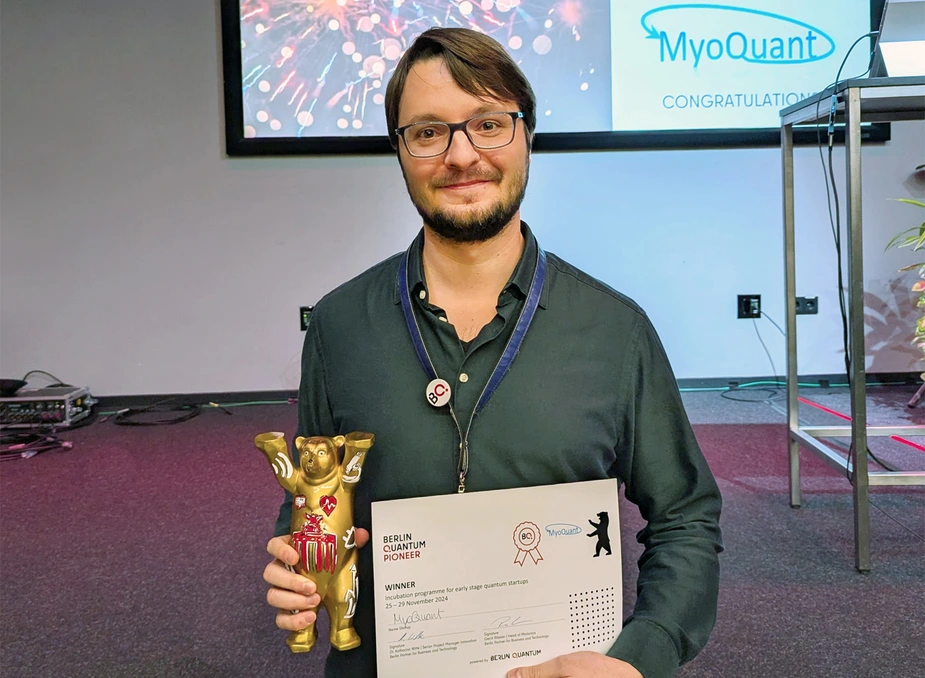Award for FBH researchers from MyoQuant project
At the Berlin Quantum Pioneer Days the young scientists were awarded the jury prize
A successful week came to an end for Sascha Neinert and Kirti Vardhan. The two young scientists from the Joint Lab Integrated Quantum Sensors (IQS) were awarded the jury prize of the Berlin Quantum Pioneer incubation programme for their research work carried out in the MyoQuant project. They prevailed against eight other teams from Germany, Chile, Denmark, and Singapore. The prize was presented at the closing event at the Betterplace Umspannwerk in front of 150 participants. The one-week incubator workshop organized by Berlin Partner took place in Berlin from 24 to 29 November 2024 – a format that inspired: “We established numerous connections with experts and companies from the fields of quantum computing, sensing and communication,” says prizewinner Sascha Neinert. “The intensive training and mentoring were also excellent, providing us with important insights on how to build a company from our research project.”
Versatile applications – miniaturized quantum sensors
The MyoQuant project aims to miniaturize magnetic field sensors for use outside laboratory environments. The goal is to develop a portable solution with a low SWaP (Size, Weight, and Power) budget. In other words, creating an energy-efficient sensor with reduced dimensions and low weight. To this end, the research team at the Joint Lab, a collaborative effort between Berlin-based Ferdinand-Braun-Institut and Humboldt-Universität zu Berlin, uses amplified light-matter interactions through non-linear optical effects in resonant atomic media. With atomic, optically pumped magnetometers (OPM), the team is working to create a robust, highly sensitive sensor system.
This technology opens up new perspectives in biomedical research, for example to diagnose muscular fatigue as well as to measure brain and heart activity. Such measurements require magnetic field sensors with sub-pico-Tesla sensitivities and a high bandwidth in the frequency range up to 1000 hertz. In addition to the detection of biomagnetic signals, such highly sensitive magnetic field sensors have numerous other applications, including industrial sensing and geophysical investigations.
Further information:
Contact:
Ferdinand-Braun-Institut gGmbH,Leibniz-Institut für Höchstfrequenztechnik
Gustav-Kirchhoff-Str. 4, 12489 Berlin
Tel.: +49 30 63922600
Email: pr(at)fbh-berlin.de
www.fbh-berlin.de
Press release FBH Berlin, 3 December 2024
